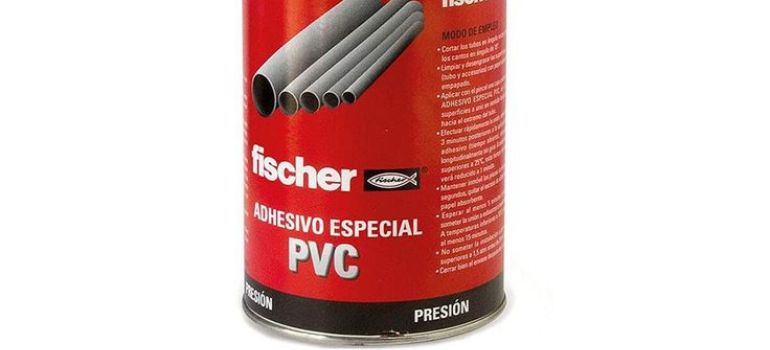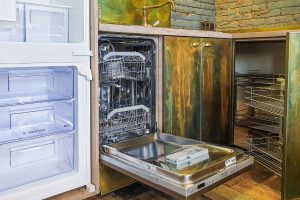Introduction
PVC glue, also known as PVC cement, is a vital component in joining PVC pipes and fittings. Its strength is critical in ensuring leak-free and durable connections. In this article, we will explore the various aspects of PVC glue, from its types to the factors that influence its strength, and even discuss its applications beyond plumbing.
What is PVC Glue?
PVC glue is a specialized adhesive designed to bond PVC (polyvinyl chloride) materials effectively. It creates a chemical reaction that fuses the PVC surfaces together, creating a robust and durable connection.
Types of PVC Glue
Standard PVC Cement
Standard PVC cement is the most common type of PVC glue, known for its strong and reliable bonds. It is suitable for most PVC applications, including plumbing and construction.
PVC Primer and Cement Combo
This combo includes a primer and cement. The primer prepares the PVC surface, enhancing the adhesive’s effectiveness. It is often used in high-pressure plumbing installations.
The Bonding Process
Understanding how PVC glue works is crucial. When applied, it softens the PVC surfaces and chemically welds them together, creating a powerful, long-lasting bond.
Factors Affecting Strength
Several factors influence the strength of PVC glue joints:
Surface Preparation
Properly cleaned and roughened PVC surfaces allow for better adhesion.
Temperature and Humidity
Temperature and humidity levels during the bonding process can impact the strength of the bond.
Pressure and Load-Bearing
The amount of pressure and load the PVC joint will bear affects the choice of PVC glue and the bond’s strength.
Applications of PVC Glue
PVC glue finds applications in various fields:
Plumbing
In plumbing, PVC glue is indispensable for creating watertight seals in PVC pipes and fittings.
PVC Pipes in Construction
In construction, PVC pipes and fittings, bonded with PVC glue, are used for drainage and sewage systems due to their durability.
DIY Projects
DIY enthusiasts use PVC glue for crafting and building a wide range of projects, from PVC furniture to garden structures.
Tips for Using PVC Glue
For a strong bond, follow these tips:
Cleanliness is Key
Clean both PVC surfaces thoroughly before applying the glue.
Apply Uniform Pressure
Evenly distribute pressure to ensure the adhesive spreads evenly.
Allow for Cure Time
Let the joint cure for the recommended time for maximum strength.
Strength Test Comparisons
We’ll compare the strength of PVC glue with other adhesives and examine how PVC joints perform under stress.
Common Misconceptions
Addressing common myths and misconceptions about PVC glue and its performance.
Safety Precautions
Safety should always be a priority when working with PVC glue. We’ll cover essential safety measures.
Environmentally Friendly Options
Exploring eco-friendly alternatives to traditional PVC glue.
Choosing the Right PVC Glue
When it comes to selecting the appropriate PVC glue for your project, consider the following factors:
- Application: Determine the specific application, such as plumbing, construction, or DIY projects. Different types of PVC glue may be better suited for different tasks.
- Pressure and Load: Assess the amount of pressure and load your PVC joint will endure. High-pressure situations may require a stronger adhesive.
- Environmental Factors: Consider the environmental conditions, including temperature and humidity, as they can impact the curing process.
- Safety and Environmental Concerns: If you have safety or environmental concerns, explore eco-friendly alternatives that offer strong bonding capabilities.
Future Innovations in PVC Adhesives
The world of adhesives is continually evolving, and PVC glue is no exception. Researchers are constantly working on developing new formulations that are not only stronger but also more environmentally friendly. Keep an eye out for future innovations in the world of PVC adhesives.
Exploring Advanced PVC Bonding Techniques
In addition to the standard usage of PVC glue, there are some advanced techniques and considerations that can enhance the strength and reliability of your PVC joints.
Solvent Welding: Solvent welding involves the use of a specialized solvent-based PVC adhesive. This method results in a chemical fusion of PVC materials, creating a bond that is often stronger than the PVC itself. It’s commonly used in industrial applications and requires precision and skill.
Reinforcement: For critical applications where extra strength is required, consider reinforcing your PVC joints with materials like fiberglass or mesh. This added layer of support can significantly increase the joint’s load-bearing capacity.
Professional Installation: While DIY projects are a great way to utilize PVC glue, for complex or high-pressure plumbing systems, it’s advisable to seek the expertise of a professional plumber. They have the experience and knowledge to ensure that joints are bonded correctly, minimizing the risk of leaks or failures.
Regular Inspections: To maintain the long-term strength of PVC joints, it’s essential to conduct regular inspections. Check for signs of wear, stress, or deterioration and take preventive measures if needed. Promptly addressing any issues can prevent costly repairs down the line.
The Role of PVC Glue in Sustainability
As environmental concerns grow, it’s crucial to consider the sustainability of the materials and adhesives we use. PVC glue, while highly effective, may not align with eco-friendly practices due to its chemical composition. However, there are alternative options emerging in the market.
Eco-Friendly PVC Glues: Some manufacturers are now producing PVC glues that contain fewer volatile organic compounds (VOCs) and are less harmful to the environment. These adhesives aim to provide the same bonding strength while minimizing their impact on the ecosystem.
Exploring Alternative Materials: In certain applications, it may be worth considering alternative materials to PVC that are inherently more eco-friendly. For instance, using metal or clay pipes in plumbing systems can reduce the reliance on PVC.
Recycling PVC: Proper recycling of PVC materials is another way to promote sustainability. PVC can be recycled and used in various applications, reducing the need for virgin PVC and minimizing waste.
The Future of PVC Bonding
As technology advances, we can expect further innovations in PVC bonding techniques. Researchers are continually working on developing adhesives that are not only stronger but also safer for the environment. These advancements will likely shape the future of PVC bonding and its role in various industries.
Exploring PVC Glue Alternatives
While PVC glue is known for its strength, it’s essential to explore alternatives when specific needs or environmental concerns arise. Here are some adhesive options to consider:
1. Epoxy Resin: Epoxy resin is a versatile adhesive known for its exceptional strength and durability. It can bond various materials, including PVC, and is suitable for both indoor and outdoor applications. Epoxy resin also offers a longer working time, allowing for precise adjustments before curing.
2. Silicone Adhesive: Silicone adhesive is an excellent choice for applications that require flexibility and resistance to temperature extremes. It’s commonly used in sealing and bonding tasks, making it suitable for PVC joint sealing in plumbing.
3. Teflon Tape: Teflon tape is often used in plumbing for sealing threaded connections. While it’s not an adhesive in the traditional sense, it creates a tight, leak-proof seal when wrapped around threads, making it a valuable addition to your plumbing toolkit.
4. Mechanical Fasteners: In situations where adhesive bonding may not be suitable, such as heavy load-bearing structures, mechanical fasteners like screws and bolts provide a reliable alternative. Combining mechanical fasteners with adhesive bonding can yield exceptionally strong joints.
5. Green Adhesives: As sustainability becomes a focal point, consider exploring adhesives labeled as “green” or “eco-friendly.” These adhesives are formulated with minimal environmental impact in mind and can be an excellent choice for environmentally conscious projects.
Troubleshooting Common PVC Glue Issues
While PVC glue is a powerful adhesive, occasionally, issues may arise. Here are some common problems and their solutions:
1. Incomplete Bonding: If you notice that the PVC joint hasn’t bonded correctly, it may be due to inadequate cleaning of the surfaces. To remedy this, disassemble the joint, clean it thoroughly, and reapply the PVC glue following the recommended procedures.
2. Leaks: Leaks can occur if the joint hasn’t cured properly. Ensure that you allow sufficient time for the adhesive to cure before subjecting it to pressure. Applying uniform pressure during bonding and letting the joint sit undisturbed will help prevent leaks.
3. Excess Glue: If you’ve applied too much PVC glue, it can create a messy joint and weaken the bond. Clean up excess adhesive immediately with a clean cloth or rag before it cures.
4. Temperature Variations: Extreme temperatures can affect the curing process of PVC glue. Avoid bonding PVC joints in extremely hot or cold conditions, and follow the manufacturer’s recommendations for temperature ranges.
5. Safety Concerns: Always prioritize safety when working with PVC glue. Use appropriate personal protective equipment (PPE), work in well-ventilated areas, and store the adhesive properly to prevent accidents.
The Ongoing Evolution of PVC Glue
PVC glue has come a long way in providing reliable bonding solutions for various applications. As technology continues to advance, we can expect further improvements in adhesive formulations, making them even more efficient, environmentally friendly, and adaptable to diverse needs.
Conclusion
PVC glue, when used correctly, proves to be a strong and reliable adhesive for various applications. Understanding its strength and proper usage is essential for achieving successful projects.
Frequently Asked Questions
Yes, PVC glue can be used outdoors as long as it is rated for outdoor use and can withstand exposure to the elements.
PVC glue is designed specifically for PVC materials. While it may work on other plastics, it is recommended to use adhesives tailored to the specific materials you are bonding for optimal results.
The curing time can vary depending on factors like temperature and humidity. In most cases, it takes 24 to 48 hours for PVC glue to fully cure.
If you spill PVC glue, clean it up immediately using appropriate safety measures and follow the manufacturer’s instructions for handling spills.
PVC glue can emit fumes during the curing process, which may be harmful if inhaled in large quantities. It is essential to use PVC glue in well-ventilated areas and wear appropriate safety gear as recommended by the manufacturer.



